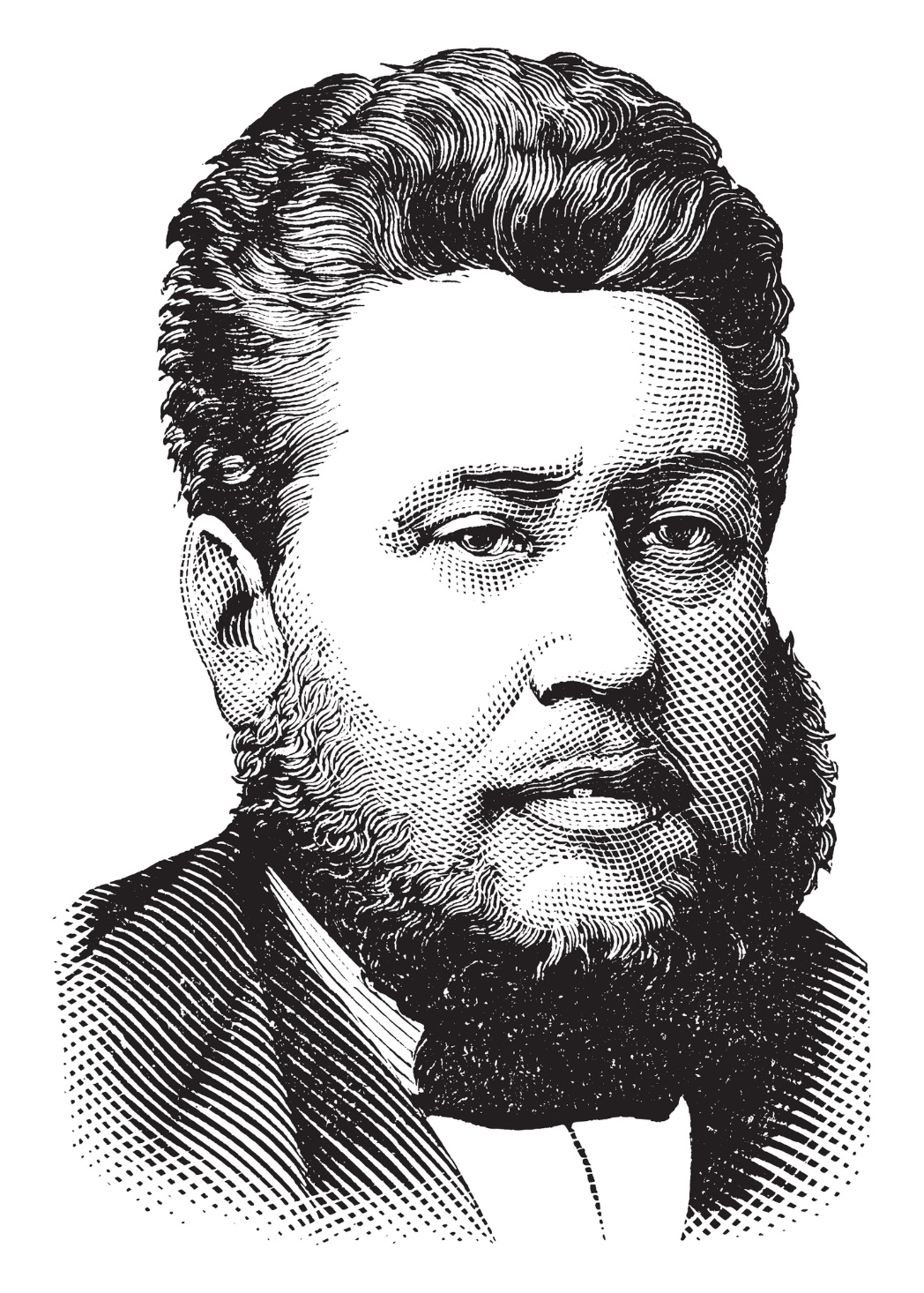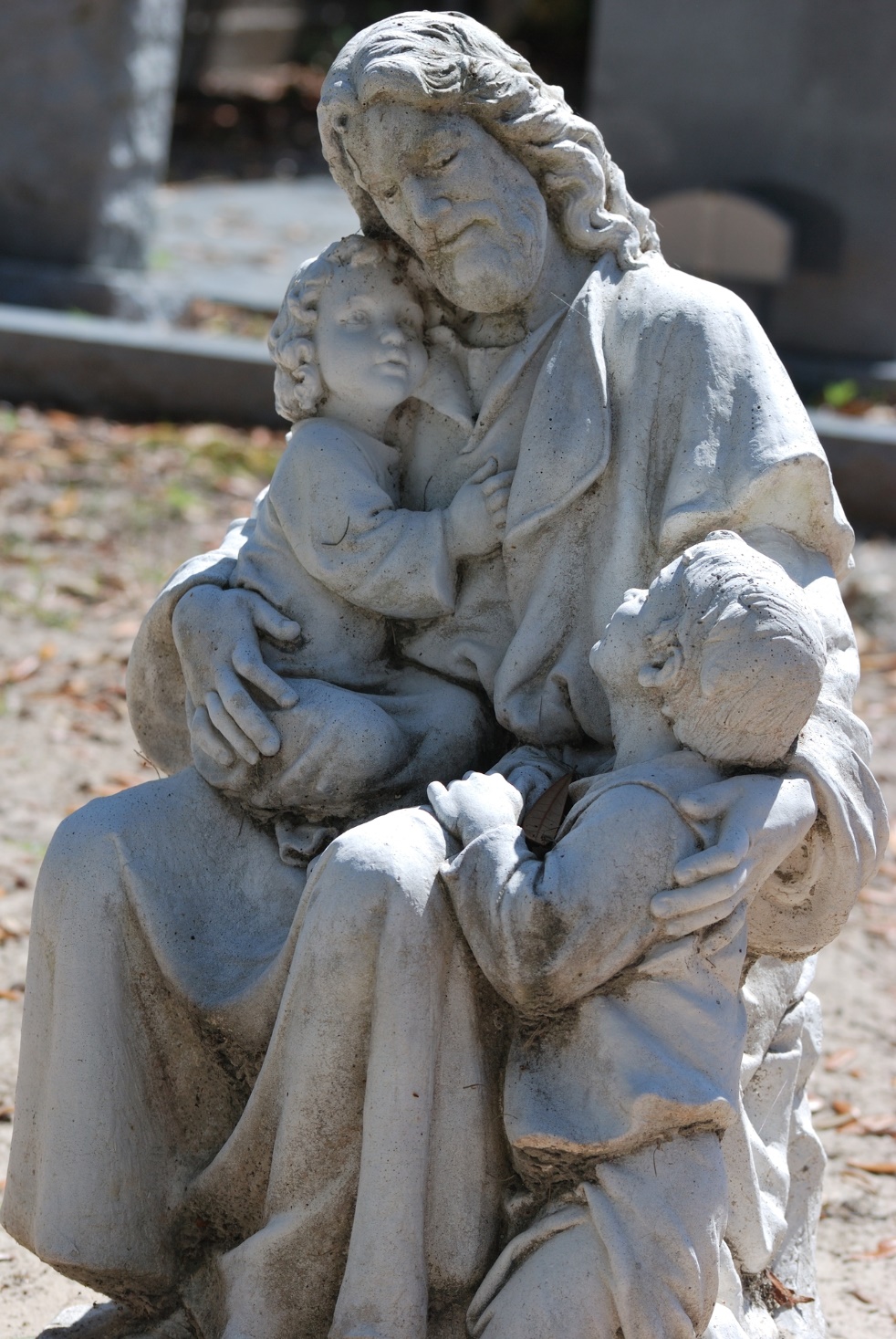BP91

But I can hardly sit still. I keep fidgeting, crossing one leg and then the other. I feel like I could throw off sparks, or break a window–maybe rearrange all the furniture ~ Raymond Carver, Where I’m Calling From: New and Selected Stories
***
I lied and said I was busy.
I was busy;
but not in a way most people understand.
I was busy taking deeper breaths.
I was busy silencing irrational thoughts.
I was busy calming a racing heart.
I was busy telling myself I am okay.
Sometimes, this is my busy –
and I will not apologize for it ~ Brittin Oakman
***
Some people feel guilty about their anxieties and regard them as a defect of faith. I don’t agree at all. They are afflictions, not sins. Like all afflictions, they are, if we can so take them, our share in the Passion of Christ ~ C.S. Lewis, Letters to Malcolm: Chiefly on Prayer
***

Michael Reeves wrote an article for Crossway entitled, Did You Know That Charles Spurgeon Struggled with Depression? In that article he said about Spurgeon: Aged twenty-two, as pastor of a large church and with twin babies at home to look after, he was preaching to thousands in the Surrey Gardens Music Hall when pranksters yelled “fire,” starting a panic to exit the building which killed seven and left twenty-eight severely injured. His mind was never the same again. His wife, Susannah, wrote, ‘My beloved’s anguish was so deep and violent, that reason seemed to totter in her throne, and we sometimes feared that he would never preach again.’
Then, from the age of thirty-three, physical pain became a large and constant feature of life for him. He suffered from a burning kidney inflammation called Bright’s Disease, as well as gout, rheumatism, and neuritis. The pain was such that it soon kept him from preaching for one-third of the time. Added to that, overwork, stress, and guilt about the stress began to take their toll. And all this was in the public eye and was jumped on by his many critics, not making it easier to bear. The suffering, they argued rather predictably, was a judgment from God.
The pain, the politics, the opposition, and the overwork (as well as bereavements, like that of his young grandson) all affected him deeply, if in waves. So much so that today he would almost certainly be diagnosed as clinically depressed and treated with medication and therapy. The depression could hit him so intensely that, he once said, ‘I could say with Job, “My soul chooseth strangling rather than life” [Job 7:15]. I could readily enough have laid violent hands upon myself, to escape from my misery of spirit.’
Ugh.
Reeves’ words open a window to the soul of a giant of the faith who was often disabled by physical and mental illness. How can this be? Isn’t the Christian life about prosperity and peace and joy? Isn’t life supposed to go well for those who are children of the King?
As a brief aside, let’s entertain the question, Is suffering the result of sin, or a random event, or does God employ it to grow us into the image of His Son? I believe that God absolutely works all things together for good for those who love Him–even the suffering in our lives. Maybe mostly our suffering because it is the agent that can soften our souls to be malleable and reshaped.
Growth involves stretching and discomfort. It is like plate tectonic dynamics deep down in our souls where huge invisible plates are shifting, grating, and grinding. I have not seen true growth occur apart from some type of shifting and suffering.

If you want to live, you must breathe. If you wish to grow, you will experience suffering. Remember the universal truth: You can choose the pain of growth or the pain of staying the same. Either way, you will suffer, so you might as well suffer for growth instead of suffering because you choose stagnancy and what is ‘safe’ and familiar. How sad that so many people decide to suffer for staying the same, for avoiding growth.
Suffering is not the worst thing in the universe. Neither is death. The worst thing in the universe is being alone. Separate. Alienated. Abandoned. Hiding where no one can see you. Doing life on your own. Choosing to avoid the suffering that comes with loving others versus tolerating them or moving away from them.
If mental illness impacts faith giants like Spurgeon, should we expect any different in our own lives? If Jesus Himself suffered–deeply suffered–will we not also share in His sufferings?
This blog will address anxiety, in specific, and mental illness, in general. Instead of the normal flow of an essay, I am going to throw out some bullet points about anxiety and develop a few.
□ Everyone is mentally ill. Mental illness is not something that occurs in discrete boxes—some have it and some don’t. Mental illness is on a continuum, and we are all somewhere on that continuum. (Maybe some who are the most severely broken are those who walk most closely with Jesus.) What would you expect after the Fall of humankind? Just as we are physically and spiritually broken, so we are mentally/psychologically broken.
One positive takeaway from knowing/admitting that you’re mentally ill is that you will be less inclined to judge others because you know you are mentally ill as well.
A second hopeful takeaway is to never forget that God is present for the humble and the broken but does not approach the proud and the self-sufficient who do not need Him and do not cry out for Him. Remember the Scripture that is often cited at Designer Therapy for Life: For thus says the One who is high and lifted up, who inhabits eternity, whose name is Holy: “I dwell in the high and holy place, and also with him who is of a contrite and lowly spirit, to revive the spirit of the lowly, and to revive the heart of the contrite” ~ Isaiah 57:15

A final takeaway that we will receive with mixed feelings is that anxiety is normal. Not desirable, but normal—in a fallen world–even for children of the king who groan in this valley of the shadow as we wait eagerly for adoption as sons and daughters, the redemption of our bodies ~ Romans 8:23
□ Anxiety manifests in different ways. If I’m very reductionistic about it, I would list three types of anxiety: everyday anxiety, phobias, and Break-Through Anxiety. No, this is not an exhaustive list, but it works for our purposes here. Obsessive-Compulsive Disorder might be a fourth category of anxiety, but I will not be addressing that in this post except to say that often it seems driven by a need to undo badness and guilt via perfectionism.
Everyday anxiety is like worry. We worry about finances, the pain in our abdomen—it must be cancer—if our baby will die of SIDS during the night, and about the job interview tomorrow. Jesus says in Matthew 6:31-33 about everyday anxiety, Therefore do not be anxious, saying, ‘What shall we eat?’ or ‘What shall we drink?’ or ‘What shall we wear?’ For the Gentiles seek after all these things, and your heavenly Father knows that you need them all. But seek first the kingdom of God and his righteousness, and all these things will be added to you.
Phobias are usually learned fears around things like dogs, elevators, snakes, needles, spiders, dentist’s chairs, flying. A few people might also experience more rare phobias like taphophobia (fear of being buried alive), ombrophobia (fear of rain), ephebiphobia (fear of adolescents), thalassophobia (fear of deep, open water like the ocean), or even hippopotomonstrosesquippedaliophobia (appropriately, the fear of long words)!
We might be born with phobias as a result of the Fall, but often we learn a phobia by a frightening encounter with a specific stimulus that previously was a neutral or even a positive object. For example, flying may have been a positive experience for you until it was associated with the awful panic you experienced when your flight to Florida experienced an hour of severe turbulence. You paired anxiety with flying, and they will stay paired until you unlearn the association and pair flying with relaxation or excitement.
Expanding a bit further, we might develop a phobia when we experience a panic attack while in a certain situation (for example, at a funeral) and then fear that every time we encounter the same situation or stimulus, we will have another panic attack or pass out or feel trapped or have a heart attack and die.
The third type of anxiety is something I refer to as Break-through anxiety (BTA), otherwise known as sheer torture. BTA is probably most closely related to the DSM diagnosis referred to as Generalized Anxiety Disorder. BTA occurs when your defenses against anxiety are totally overwhelmed. It’s like a forty-story building collapsing when its foundation crumbles.
When BTA is at its peak, prayer and scripture can feel like a mosquito in a hurricane. Your brain—maybe mostly the lower brain, the amygdala, is so fired up that your higher brain that reads words of the Bible and attempts to pray to God is barely functioning. God feels far away, even inaccessible. Christians can experience deep discouragement during these times because they often will question their faith or God’s loving presence.

While BTA often seems to appear out of nowhere, it actually has been incubating for months or years like a monstrous storm cloud mushrooming on the horizon. BTA might be equivalent to the old term, nervous breakdown, where a person ends up in the psych ward because they cannot breathe, think straight, sleep, stop their racing thoughts, calm their panic attacks, or prevent jolts of electricity from ripping through their brain and body. Traumatic memories (PTSD) can trigger or overlap with BTA and help lead to the physical and mental collapse.
Those of you who have experienced or are experiencing BTA know very well the misery of such a disabling disorder. Those who have not experienced it, please don’t judge those who are held hostage by it. BTA can take people to the precipice of hell itself—or so it feels. Shame can accompany the deep sense of weakness, especially as these individuals compare themselves to those around them who are functioning ‘normally’. Talk about piling on when someone is down.
While major depression can feel like a black hole one cannot escape, BTA feels like a torture chamber that reduces life from a broad meadow to a dark hallway that eventually becomes so narrow that one becomes stuck there in the dark, maybe unable to breathe.
Agoraphobia, the fear of open places like the supermarket, the mall, a restaurant, a crowded basketball arena, a church, or even public transportation or your own vehicle, can accompany BTA, further reducing the level of functioning.
□ What is anxiety? Like depression (and most other mental illnesses), it is a signpost. It is not THE problem although relieving its symptoms is essential. It points to a problem like a road sign points to a destination. Anxiety is like the check engine light on the dashboard of your car—it warns you that something is wrong under the hood.
□ Causes of anxiety (some of these overlap):
1) The Fall was the beginning of anxiety. The Fall fractured the relationship between God and His creatures and led to a terrifying separation characterized by fear and abandonment. Suddenly, Adam and Eve were alone in the universe. They felt the heavy dread of God’s holy anger against sin. They were no longer who they had been created to be. Talk about anxiety and disorientation.
2) Stuffing emotions (often anger) and hiding the genuine, honest self.

3) The greater the distance between the True Self and the False Self (being nice, a peacekeeper, a caretaker, a chameleon), the greater the anxiety.
4) Self-sufficiency and the belief that you cannot be weak.
5) The fear that if people see you–the real you–they will never love that person so you must become the person who you think they want you to be. Unfortunately, you then create further distance between the True Self and the False Self.
6) Unspoken family rules that tell you not to be weak, not to be needy, to be seen and not heard will grow anxiety. Some children are surrounded by adults who have no supplies in their emotional pantries so they condition the child not to need what they cannot provide. For example, the message might be, don’t have emotions that might expose my inability to be present for you or that might trigger memories of my own past abuse that I never faced.
7) Self-protection to a fault will leave you alone and anxious. Your True Self will remain in exile, safe and unloved, while your False Self interacts with the world and seeks achievement as a substitute for love.
8) The presence of a strong prosecuting attorney inside oneself (internalized critical, shaming voices of others and one’s own internal self-criticism) and a weak defense attorney. And/or, the presence of a strong prosecuting attorney outside (Satan, bullies, human detractors) coupled with the absence of a good defense attorney like Jesus or a faithful friend or a present parent.
9) Hidden sin leads to anxiety because hiding always leads to separation from God and others. Is it the sin that wrecks you the most? Maybe. Maybe not. Maybe hiding yourself from God’s presence is the greatest sin because it distances you from your Defense Attorney, the One who can wash away all your imperfections.
10) Anxiety occurs more readily in a self that is not very resilient, that does not absorb stress and emotions very well. Helen may be more prone to anxiety than Mary because in her journey of the development of the self she did not learn boundaries, self-comforting skills, trust in parents and God, the ability to ask for help, and even the skill of disagreeing with others instead of being nice all the time. The strength of your emotional rebar (ego strength) will impact the level of anxiety your experience.

11) The more your iceberg (self) is beneath the water (hidden from others including God), the more you will be anxious. On a scale of 1-10 with 10 representing total hiding, what is your score on the iceberg scale? The higher your score, the more anxiety you will experience because intimacy with those who know how to love reduces anxiety while separation from others will raise the level of anxiety because you were created for relationship and ‘withness’. Anything that reduces your God-given personhood will feed anxiety.
12) The heart slayer par excellence is shame. Identify it and eradicate it by remembering how God sees you. The LORD your God is in your midst, a mighty one who will save; he will rejoice over you with gladness; he will quiet you by his love; he will exult over you with loud singing ~ Zephaniah 3:17.
□ Anxiety can show up in your body (tingly hands, shortness of breath, tight neck and shoulder muscles, cold extremities, GI disturbance), in your emotions (feelings of dread, fear, claustrophobia), and your cognitions (thoughts that you might have cancer, that you will faint if you go to the store, that you will never get better but will always be disabled).
□ Anxiety is self-focused. It’s difficult to be present for others when you feel like you can’t breathe or swallow or that your heart is going to stop beating when you fall asleep. In a very real way, anxiety prevents you from loving others. It chokes your empathy and your ability to truly listen to someone else because you’re worried about what they’re thinking about you. Can we see why Satan loves anxiety? If you’re experiencing BTA, you will struggle to obey the two Great Commandments to love God and others.

□ How do we attempt to deal with anxiety? Addictions like alcohol, marijuana, smoking, sex, shopping. Distracting ourselves. Avoiding places, people, and stimuli that make us feel anxious. Emotionally merging with others so we are not alone and can be dependent on them to be strong for us. Even turning to psychotropic medications to “fix” us without dealing with what the signpost is trying to tell us, viz., not addressing the root of things. We settle for putting band aids on shrapnel wounds.
□ The Well-Leakage-Volcano metaphor is critical to remember when dealing with anxiety. If you freely bring your emotions, needs, and True Self up through the Well in that little bucket called transparency and intimacy, you will have less anxiety because you are not hiding or distancing yourself from others. If you shut down the Well due to fear, shame, distrust, and past hurt, your emotions and needs must and will Leak out sideways in the form of such things as depression, physical symptoms, perfectionism, and anxiety. Or they will explode out of you through the Volcano in the form of anger and panic. Always use the Well of loving connection so Leakage and Volcanos can be minimized.
□ What are the ways to heal anxiety? Since anxiety is so much about separation, hiding, moving away from others, self-sufficiency, and the True Self being beneath the water like the iceberg at level 8 or 9–healing BTA in particular is about removing all obstacles to being seen, known, loved, included, and belonging.
1) Move toward others even if you dread being vulnerable. Jesus Himself said, “Come to me, all who labor and are heavy laden, and I will give you rest ~ Matthew 11:28. Come, not go or run away.
2) Use the Well of Intimacy. Along the theme of bringing up your emotions and needs and sharing them with others, Scripture says to cast all your anxieties on him, because he cares for you ~ I Peter 5:7. If you don’t come to God and surrender your heart to Him, you will experience Leakage and/or the Volcano.
3) Stop hiding and come out of the dungeon of self-protection. Ephesians 5:8 tells us that at one time you were darkness, but now you are light in the Lord. Walk as children of light. If children of light hide in the darkness, we are going against our own new nature of living in the light. This kind of dissonance will always manifest in Leakage. Anxiety will show up to tell you that something is out of alignment within you.
4) Need God and others instead of trying to be self-sufficient. Adam and Eve tried to get away from God and figure things out alone, but God’s word says something huge in Hebrews 4:15-16: We do not have a high priest who is unable to sympathize with our weaknesses, but one who in every respect has been tempted as we are, yet without sin. Let us then with confidence draw near to the throne of grace, that we may receive mercy and find grace to help in time of need. Self-sufficiency draws us away from the loving God who commands us to draw near.

5) Identify the unspoken rules from your family of origin and the lies that come directly from Satan. Then, by the power of the Holy Spirit, challenge them and undo them. Be patient because the tap root of some of these rules and lies have cursed your family for two hundred years. We destroy arguments and every lofty opinion raised against the knowledge of God and take every thought captive to obey Christ ~ 2 Corinthians 10:5.
These unspoken rules and the arguments of Satan are designed to separate you from God, to diminish your knowledge of Him, to ward off your heart intimacy with Him. They are capable of killing your soul.
6) Confess hidden sin and ask God to remove any blind spots that prevent you from seeing your sin. Sin is the separator that Satan sends to sever our intimacy with our Savior.
7) Select a relaxation technique/habit that will eventually calm your body after lots of rehearsal. Practice deep breathing, tensing your muscles when you breath in slowly and relaxing them as you breath out slowly. Simultaneously, visualize the most comforting sight you can imagine in your mind. It might be Jesus looking into your eyes with compassion. Accompany the breathing, relaxing of muscles, and visualizing with a scriptural truth that brings comfort or confidence to you, e.g., fear not, for I am with you; be not dismayed, for I am your God; I will strengthen you, I will help you, I will uphold you with my righteous right hand ~ Isaiah 41:10. Sometimes BTA can be so intense and disruptive in your brain that you may only be able to hold on to a few words at a time like, Fear not—I am with you, or I will help you.
8) If you are experiencing BTA, do find a counselor you can work with. BTA is not a quick or an easy soul ‘repair’, and you will need someone who can walk with you to assist in the healing. Even more than the problem solving and professional training they may offer, you might benefit most from his or her presence. Presence, as opposed to absence, is at the very foundation of healing anxiety. Presence is about experiencing someone with you instead of being alone. A godly, trained therapist will help you learn how to use the bucket of intimacy. He or she will assist you to move toward others and identify what obstacles might separate you from others.

9) Speaking of obstacles, you will need to identify what coping skills you learned very possibly at a younger age that do not calm your anxiety as an adult but now serve to feed it. For example, a coping skill or defense like avoiding being seen or known may have helped you to fly under the radar in a threatening environment when you were a child. But as an adult, this skill of avoiding detection will leave you separated from the very people who can know you and love you. Anxiety will show up as a signpost indicating that you are alone, living in exile.
10) Identify cognitive sources of anxiety like lies, shame, and obsessive thinking and, at a very minimum, work to replace the stinking thinking and false arguments with God’s truth about you and Himself and the need for the body of Christ to walk with you. Do not trust any voice that tells you to hide, or that tries to convince you that you are impossibly unlovable.
11) As needed, consult a physician or psychiatrist for medications not as the ultimate solution to your anxiety but to give you enough cognitive space to begin practicing different thoughts and enough containment of strong body arousal that you can begin to associate relaxation with the stimuli that previously were associated with BTA.
12) Exercise can be very helpful to facilitate deep breathing, muscle relaxation, and the release of endorphins.
13) Anxiety can destroy sleep. Talk to your physician about possible short-term medications to help your body sleep and for sure work with your counselor to develop skills to help you sleep. Again, do not see these meds as the fix but as temporary assistance while you build your emotional and spiritual resilience.

14) As you take back the real estate in your mind and reduce the physical stress manifested in your body and contain the emotions that consumed you, all along the way practice Philippians 4:4-9 (and other Scriptures that speak of practicing the presence of God):
Rejoice in the Lord always; again I will say, rejoice. Let your reasonableness be known to everyone. The Lord is at hand; do not be anxious about anything, but in everything by prayer and supplication with thanksgiving let your requests be made known to God. And the peace of God, which surpasses all understanding, will guard your hearts and your minds in Christ Jesus. Finally, brothers, whatever is true, whatever is honorable, whatever is just, whatever is pure, whatever is lovely, whatever is commendable, if there is any excellence, if there is anything worthy of praise, think about these things.
The key here in Philippians 4 is to practice. Practice rejoicing. Worship the perfect and holy God because you can’t be anxious when your eye is on Him. Practice not being anxious. Practice praying. Practice being thankful. Practice Jesus’ Presence. Practice training your mind to rehearse true, positive, hopeful truths that flow from the very nature of an all-powerful, loving God. It will take weeks and months but practicing these habits will eventually lead to a change in your brain and soul. As DTFL has said elsewhere, practice will not make perfect, but it can make permanent.
□ Some final, miscellaneous thoughts: Anxiety will come if we try to carry what only God is meant to carry. Anxiety can and will expose our finitude as humans. It can destroy our self-reliance and drive us to God. It can be the medium through which God teaches us to need. It is not an easy truth to hear, but someone once said that if God has an impossible task to accomplish, He will take an impossible person and break them. Anxiety can bring us to our knees at the feet of the loving God who only gives us enough pain to grow us or teach us what we absolutely must know for our freedom and joy and deepening of our relationship with Him.
Let’s close with a few final words from Michael Reeves concerning Charles Spurgeon:
Spurgeon believed that God had a good purpose in all his suffering, and because of it felt he had become a better prepared and more compassionate pastor. It enabled him to deliver a striking and most unusual lecture to his students titled “The Minister’s Fainting Fits,” in which he said:
“Knowing by most painful experience what deep depression of spirit means, being visited therewith at seasons by no means few or far between, I thought it might be consolatory to some of my brethren if I gave my thoughts thereon, that younger men might not fancy that some strange thing had happened to them when they became for a season possessed by melancholy; and that sadder men might know that one upon whom the sun has shone right joyously did not always walk in the light.

In conclusion, do not be anxious about your anxiety. This world is broken and so are you, but God has a plan to restore you. God hates break-through anxiety and desires to deliver you from it. He will grow you out of sin. He will be with you in sorrow and affliction of mind and body. He will painstakingly make you into the image of His Son so that your joy might be full. Just don’t choose to be alone. Don’t run away from Him. Run toward.
Anxiety is clearly post-Fall. Post-separation. Post-rebellion. Jesus came to take your sin and give you His righteousness so you might approach Him. He appeared to calm your anxiety by giving you the peace of His Presence that passes human understanding. Anxiety trembles in the Presence of Jesus’ love and His promise that He will never leave you or forsake you.
And one of the scribes came up and heard them disputing with one another, and seeing that he answered them well, asked him, “Which commandment is the most important of all?” Jesus answered, “The most important is, ‘Hear, O Israel: The Lord our God, the Lord is one. And you shall love the Lord your God with all your heart and with all your soul and with all your mind and with all your strength.’ The second is this: ‘You shall love your neighbor as yourself.’ There is no other commandment greater than these ~ Mark 12:28-31
There is no fear in love, but perfect love casts out fear. For fear has to do with punishment, and whoever fears has not been perfected in love. We love because he first loved us ~ I John 4:18-19
